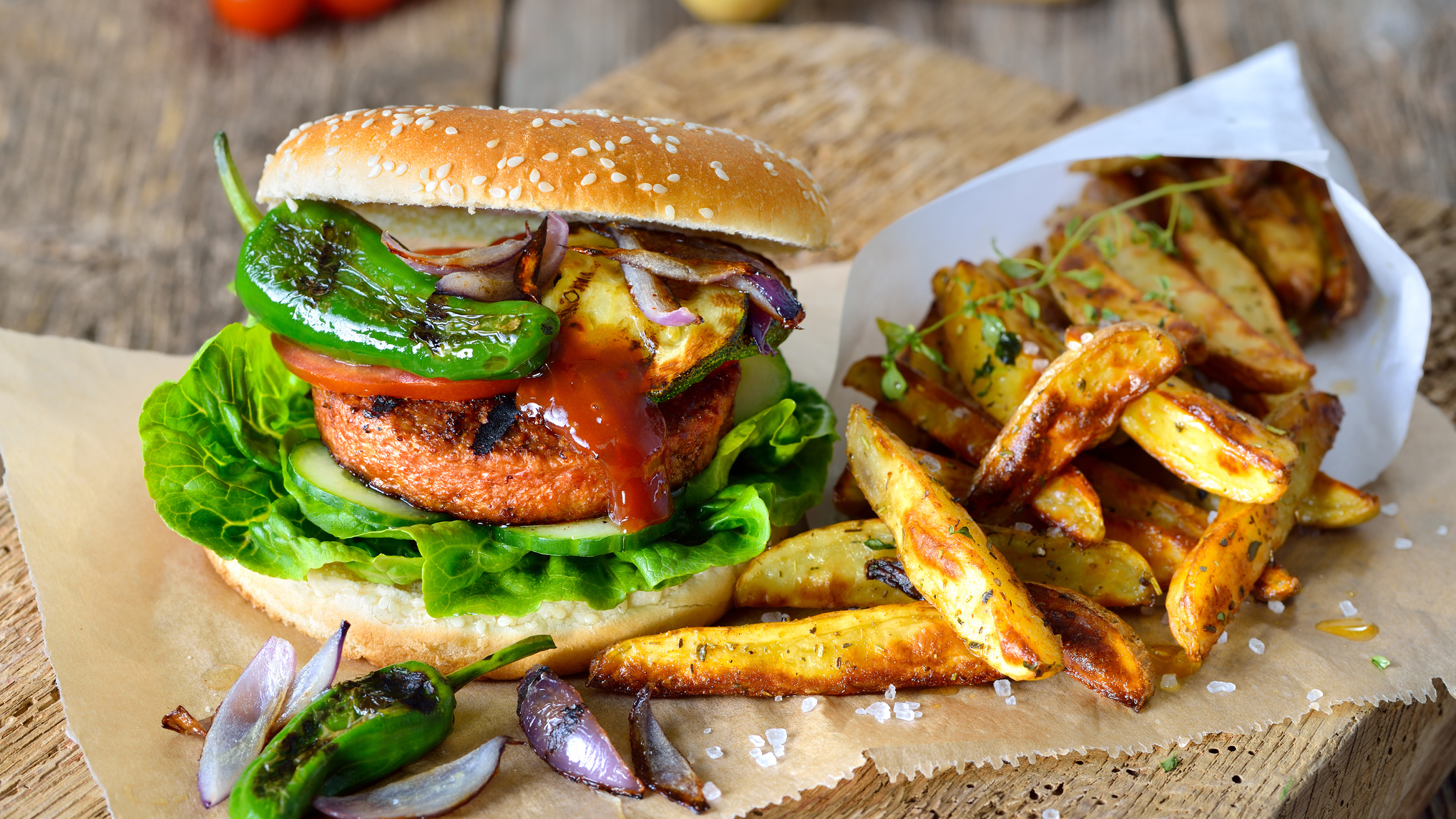Is going vegetarian an effective way to lose weight? Science weighs in
Can a veggie way of life be the answer to lower levels of obesity and decreasing your blood pressure?


If you're looking to lose weight or get healthier, your veggie friends may claim that the key is to go meat-free, but that may not technically be true. Going vegetarian can have its benefits, as giving up red and processed meat could help improve gut health and even reduce the risk of heart disease, according to science.
Some studies also show that going vegetarian can, in some instances, be the cure for obesity, but calorie consumption and regular exercise, including a workout involving the best exercise machines for weight loss, are also important factors when trying to lose weight.

A study in 2019 found that those who followed a pro-vegetarian diet, one which consumes mainly plant-based foods, and occasionally meat, does help to reduce obesity, but only when participants regularly opted for the healthier alternatives.
Another 2017 research paper looked at previous studies on the subject and concluded that a vegetarian diet was a healthier option and did lead to weight loss - but again, these results were only definitive when participants stuck to a quality vegetarian diet. Many of us would assume that a vegetarian diet would lead to us consuming more vegetables, but it could mean substituting meat for other food groups, including carbs or high-fat foods.
If cutting meat from your diet completely in order to lose weight isn't for you, the U.S. Dietary Guidelines 2015-2020 states that eating lean meats, occasionally, can still help you lose or maintain weight - as long as it's part of a healthy eating plan.

Cutting a big food group out of your diet such as meat could also lead to different eating patterns, such as eating larger portions to help you feel fuller, therefore consuming more calories. While some plant-based alternatives, including soy cheeses, nut butter, and certain beans can be high in calories and fats.
If you're looking to cut meat out of your diet, and go vegetarian, or vegan, in a bid to lose weight invest in one of the best blenders and cook from scratch - this way you know exactly what's in your food, and there won't be any hidden calories.
Get the Fit&Well Newsletter
Start your week with achievable workout ideas, health tips and wellbeing advice in your inbox.
Whether you are eating meat or a purely plant-based diet, one key factor in weight loss is making sure you're in a calorie deficit every day. If you consume too many calories (even on a plant-based diet) and don't burn them off with regular exercise, you'll either maintain your weight or could even gain weight. No matter what your diet preferences, it all comes down to calories in versus calories out, and the best exercises for weight loss can burn plenty of calories.
Sarah is a freelance journalist who writes about fitness and wellbeing for the BBC, Woman&Home and Tech Radar. During lockdown she found her love of running outside again and now attempts to run around 50 miles a month. When it comes to other fitness, she loves a sweaty cardio session – although since she’s been working out from home she’s sure her downstairs neighbors aren’t too happy about it. She also loves to challenge herself - and has signed up to do hiking holidays, intense bootcamps and last year she went on her dream activity holiday: paddle boarding around deserted islands in Croatia. On her rest days, she loves to recover with a simple yoga flow session – the perfect antidote to her active fitness schedule.
-
 I’m a personal trainer and these are some of my favourite exercises to build core and upper body strength at home
I’m a personal trainer and these are some of my favourite exercises to build core and upper body strength at homeAll you need is a set of dumbbells for this kneeling workout
By Maddy Biddulph
-
 It only takes two minutes a day to build up the flexibility required to touch your toes, says a top mobility coach
It only takes two minutes a day to build up the flexibility required to touch your toes, says a top mobility coachMeasure, reach and repeat says Roger Frampton
By Sam Rider